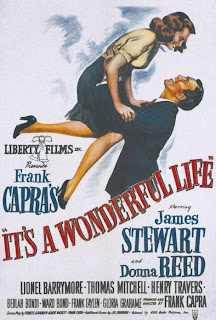Alternate history is one of those subgenres that's typically associated with science fiction, but there's nothing inherently "science fiction-y" about it. Certainly, you can't claim that it's a part of "normal" non-speculative fiction since its version of history is alternate. In addition, many of its most famous examples, including such classics as Harry Turtledove's The Guns of the South, use science fiction-y elements like time travel to create the alternate realities in which they occur. On the other hand, there are plenty of examples of works in which the only speculative device the author uses is the alternate history itself; one of the most notable of these is the work that I'll be focusing on today: Philip K. Dick's Hugo-winning novel The Man in the High Castle.
Sunday, April 25, 2010
Tuesday, April 13, 2010
Is Cowboy Bebop science fiction?
Recently, I've been on a Cowboy Bebop kick, so I figured I'd address it in this week's blog post. For the uninitiated, Cowboy Bebop is an anime series revolving around the exploits of a team of bounty hunters in a spaceship called the "Bebop." It's set in 2071, when Earth has been decimated by a terrible accident, leading its inhabitants to terraform and colonize the solar system's other planets. In addition, it has one of the most fantastic soundtracks of any TV series, ever. Is it awesome? Absolutely. But is it science fiction? Unfortunately, no.

So why isn't it science fiction?

So why isn't it science fiction?
Labels:
Avatar,
Cowboy Bebop,
Firefly,
science fiction,
space western,
star trek,
star wars,
starcraft,
Titan ae
Wednesday, April 7, 2010
How to Build a Universe that Doesn't Fall Apart Two Days Later
A middle-of-the-week tangent:

Philip K. Dick is the writer that I admire most in the world. He's best known as the author of the stories that formed the inspiration behind Blade Runner, Total Recall, and Minority Report; over his (far too short) life, he wrote 44 novels and over a hundred short stories, which collectively represent one of the richest and most significant bodies of work in the history of science fiction. But more important to me than all his fiction combined is a little-known and little-read essay entitled "How to Build a Universe that Doesn't Fall Apart Two Days Later."

Philip K. Dick is the writer that I admire most in the world. He's best known as the author of the stories that formed the inspiration behind Blade Runner, Total Recall, and Minority Report; over his (far too short) life, he wrote 44 novels and over a hundred short stories, which collectively represent one of the richest and most significant bodies of work in the history of science fiction. But more important to me than all his fiction combined is a little-known and little-read essay entitled "How to Build a Universe that Doesn't Fall Apart Two Days Later."
Labels:
blade runner,
minority report,
philip k dick,
pkd,
reality,
science fiction,
total recall
Monday, April 5, 2010
Is It's a Wonderful Life science fiction?
"What?" you think. "It's a Wonderful Life is definitely NOT science fiction. Why are you even bothering to ask?" Well, I do think it's science fiction, and here's why:

It honestly doesn't take much to begin to imagine It's a Wonderful Life in science fiction terms. The angels, for example, taken out of their spiritual context, become an advanced extraterrestrial race. In fact, even within their spiritual context, they are still a race of enormously powerful beings from outside the Earth—literally, an advanced extraterrestrial race. They use their powers to take human form and to transport George Bailey to an alternate universe in which he had never been born; both of these plot devices are firmly established within the science fiction realm. With these things in mind, why ISN'T It's a Wonderful Life science fiction?

It honestly doesn't take much to begin to imagine It's a Wonderful Life in science fiction terms. The angels, for example, taken out of their spiritual context, become an advanced extraterrestrial race. In fact, even within their spiritual context, they are still a race of enormously powerful beings from outside the Earth—literally, an advanced extraterrestrial race. They use their powers to take human form and to transport George Bailey to an alternate universe in which he had never been born; both of these plot devices are firmly established within the science fiction realm. With these things in mind, why ISN'T It's a Wonderful Life science fiction?
Subscribe to:
Comments
